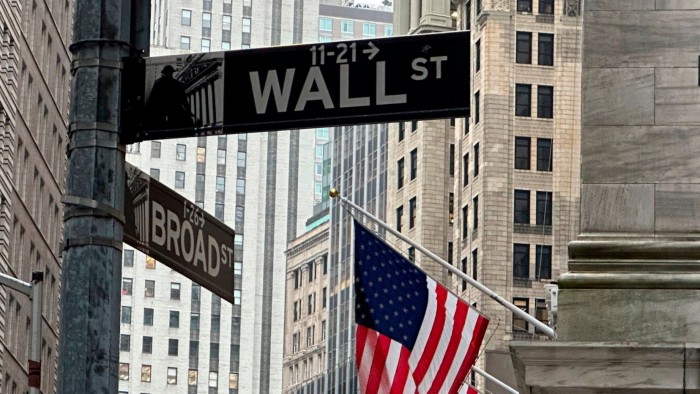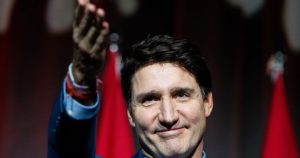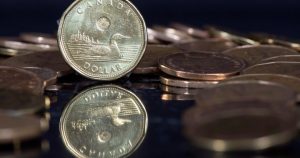US equity funds record $140bn of inflows on Trump’s ‘pro-growth’ agenda

This article is an on-site version of our FirstFT newsletter. Subscribers can sign up to our Asia, Europe/Africa or Americas edition to get the newsletter delivered every weekday morning. Explore all of our newsletters here
Today’s agenda: Macron vows to stay on; DEI on the retreat; Yoon faces impeachment vote; Big Read on Chinese exports under Trump 2.0; and the FT’s most influential women of 2024
Good morning. Investors have pumped almost $140bn into US equity funds since the election, making November the busiest month for inflows on records stretching to 2000.
What’s behind the surge? Traders are betting that Donald Trump’s vows to cut regulations and taxes will be a boon to corporate America. One fund manager cited the president-elect’s “market-friendly” picks for top posts, including financier Scott Bessent for Treasury secretary and crypto enthusiast Paul Atkins as Securities and Exchange Commission chair. A Deutsche Bank strategist also said solid projections for economic growth, corporate earnings and household cash balances suggested the trend of new inflows could continue into next year, albeit at a slower pace.

Why it matters: The flood of new money has helped to drive the major US stock indices to a series of record highs — the S&P 500 has risen 5.3 per cent since election day — with traders shrugging off concerns that Trump’s planned tariffs could drive up inflation and threaten further interest rate cuts. While the US has consistently outperformed regions such as Europe in recent years, the question is whether this narrative of “American exceptionalism” has gone too far of late. The US is “over-owned, overvalued and overhyped”, Ruchir Sharma wrote this week. “As with all bubbles, it is hard to know when this one will deflate, or what will trigger its decline.” Read more about the record inflows.
For more on markets from Rob, sign up for the Unhedged newsletter here if you’re a premium subscriber or upgrade your subscription here. Here’s what else we’re keeping tabs on today and over the weekend:
-
Economic data: The EU publishes its third-quarter GDP estimate, Germany releases its industrial production index for October, and the US has jobs figures and data from the University of Michigan’s consumer sentiment survey.
-
South Korea: President Yoon Suk Yeol faces an impeachment vote tomorrow. The country’s central bank chief told the Financial Times that the martial law crisis had delayed critical economic reforms but that Trump’s tariff threats were of greater concern.
-
Elections: Ghana holds presidential and parliamentary polls tomorrow. Romania has a presidential run-off vote the next day, tainted by official accusations of Russian meddling.
Join us next Wednesday as Financial Times editor Roula Khalaf and other FT experts discuss their predictions for the world in 2025. Register here.
Five more top stories
1. Emmanuel Macron has vowed not to step aside before the end of his term, saying opposition parties “chose chaos” by bringing down his premier in a historic no-confidence vote. The French president’s term runs until 2027, but the ousting of Michel Barnier’s government is fuelling opposition calls for him to step down early.
2. A US judge has rejected Boeing’s guilty plea agreement stemming from twin crashes of the 737 Max, citing diversity, equity and inclusion considerations in selecting a corporate monitor to oversee compliance with the deal. A judge in Texas said using the criteria would “undermine confidence” that the selection was based on competency.
-
DEI pullback: US companies are accelerating their retreat from such initiatives amid an all-out assault from conservatives emboldened by the election of Donald Trump.
-
‘Anti-woke’ ETF: A new fund aiming to punish companies focused on DEI is making Starbucks its first target.
3. Exclusive: Thames Water has received a bid from Covalis Capital that would see France’s Suez flown in to help manage a break-up of the UK’s largest water utility before listing it on the stock market. The proposal came ahead of yesterday’s deadline for indicative bids for Thames, which is saddled with nearly £19bn of debt and risks running out of cash in the new year.
4. Donald Trump has named venture capitalist David Sacks as the White House’s artificial intelligence and cryptocurrency tsar. Sacks, a confidant of Elon Musk, was one of the earliest and most vocal Silicon Valley supporters of Trump, hosting a fundraiser for the candidate in San Francisco in June. Here’s what we know about the former PayPal executive.
5. The shooting of a UnitedHealth executive in Manhattan has triggered broad concerns about corporate security, with large companies rushing to assess whether their top employees have sufficient protection. Security chiefs of groups on both sides of the Atlantic are sharing intelligence and making inquiries with specialist companies on how to shield top executives.
-
‘Deny’, ‘defend’, ‘depose’: New York detectives are investigating inscriptions of words on bullet casings left at the scene of executive Brian Thompson’s murder.
How well did you keep up with the news this week? Take our quiz.
The Big Read

Is China’s manufacturing juggernaut running out of road? Donald Trump’s return will pose one of the sternest tests yet for the country’s formidable export sector. As domestic demand suffers from a deep property slump, Beijing is under pressure to rethink the economy’s increasing dependence on outbound trade.
We’re also reading . . .
-
Global chip war: The race for semiconductor dominance has entered murky waters as the industry ponders tariffs and more under Trump 2.0, writes Chris Miller, author of Chip War.
-
‘Chancellor of peace’: As the war in Ukraine drags on, Germany’s Olaf Scholz is trying to paint his rivals as warmongers ahead of a snap vote in February.
-
Sick man of Europe? Data shows a narrative about Britain’s illness-related inactivity crisis seems wrong or at best overrated, writes John Burn-Murdoch.
-
Rachel Reeves: In an op-ed for the FT, the UK chancellor explains how she aims to deliver the government’s new “plan for change” by bringing business innovation into Whitehall.
Chart of the day
Donald Trump, a self-described “Tariff Man”, will find import taxes a clumsy and often ineffective way of asserting American power, writes Alan Beattie. Quite simply, the US just isn’t that big in global trade any more.

The FT’s Women of 2024
From Charli XCX of “brat” fame to Europe’s former competition commissioner Margrethe Vestager, we celebrate the women who are remaking the world we live in today. Read FT Weekend’s list of 25 of the world’s most influential women, written by the world’s most influential women.

Thank you for reading and remember you can add FirstFT to myFT. You can also elect to receive a FirstFT push notification every morning on the app. Send your recommendations and feedback to [email protected]
Recommended newsletters for you
One Must-Read — Remarkable journalism you won’t want to miss. Sign up here
Newswrap — Our business and economics round-up. Sign up here
#equity #funds #record #140bn #inflows #Trumps #progrowth #agenda




